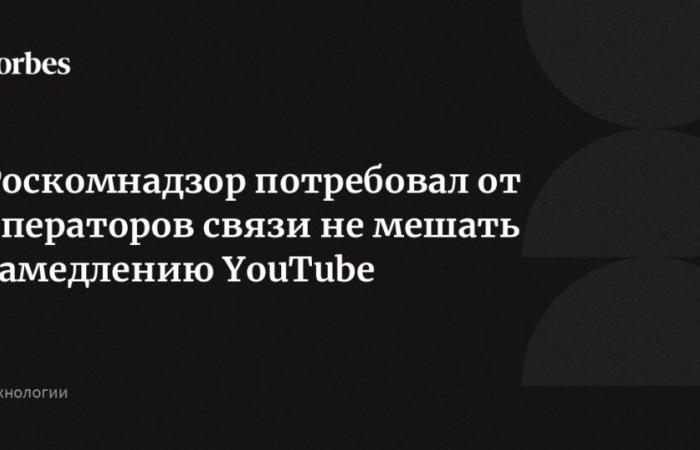The Main Radio Frequency Center (GRChTs), subordinate to Roskomnadzor, sent a letter to telecom operators calling on them not to use technologies for “distortion, fragmentation and substitution of Internet traffic” on their networks, Kommersant reported, having gained access to the document. Three sources in the market confirmed its authenticity to the publication.
The letter, sent on August 28, notes that this way the operators will not interfere with the operation of technical means of countering threats (TMT), which limit the dissemination of information prohibited in the country.
Operators must report to the State Radio Frequency Center on the measures taken by September 2.
Roskomnadzor did not comment to the publication on the contents of the GRChC letter.
The law on the “sovereign internet,” which came into force on November 1, 2019, obliges operators to place TSPU on their networks. Roskomnadzor independently installs and maintains TSPU, and operators only provide the service’s employees with access to their networks and the necessary technical conditions.
On August 28, Kommersant reported that Russian telecom operators were installing solutions on their networks that allow them to bypass YouTube’s slowdown, citing a source at one of the operators and two sources in the telecom market. The publication’s source noted that no official reasons for YouTube’s slowdown in Russia were reported, the video hosting service is not included in the register of prohibited sites and is not blocked, and therefore bypassing the restrictions does not entail liability for operators.
Operators do not influence the work of the TSPU in any way, since this equipment is not under their control, Oleg Grishchenko, president of the Rosteleset association, told the publication, commenting on the distribution of the letter by the GRChTs. At the same time, he emphasized that this letter still does not explain the legal basis for changes in the speed of access to YouTube.
At the end of July, Russian operators, including MTS and Beeline, began warning about the deterioration of YouTube’s performance for reasons beyond their control. Problems with access to the video service continued for a month. On August 8, a large-scale “failure” occurred in YouTube’s performance.
Russian authorities, including Roskomnadzor, explained the slowdown of YouTube by the termination of support for the infrastructure of Google caching servers in Russia. Experts linked the slowdown of YouTube to the actions of Roskomnadzor, which blocks the video service using TSPU. The head of the State Duma Committee on Information Policy, Alexander Khinshtein, noted in one of his posts that the “degradation” of YouTube is “a forced step aimed not against Russian users, but against the administration of a foreign resource.”






